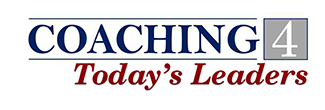
As we discussed previously in my post about being a distracted leader, distractions can be harmful at work and in life. But there are also some distractions that are both helpful and necessary.
Schedule your breaks
I introduced Aesha Tahir in a previous post about how coaches can take better care of themselves. She recommends taking breaks throughout the day, whether to get outside to breathe in nature, or to do some simple stretching exercises at your desk to change your posture and your perspective. Even just getting up to walk around the room can get your blood and brain flowing.
Listening to music is another wonderful way to decrease stress and boost your “happy hormones.” Create a personal playlist of songs that produce the desired effect, and press Play. Music therapist Jennifer Buchanan explains how music can increase the mood, focus, and productivity of your entire.
One way to make sure these breaks happen is to schedule them into your day, just like any other important appointment. You could try the Pomodoro Technique, which has you work for 25 minutes and break for five minutes. After four Pomodoro work sessions, you take a longer 15-minute break (perfect for a quick walk or an extended dance break). If 25/5 doesn’t work for you, try another interval—as long as you balance your work time with break time.
Choose joyscrolling, not doomscrolling
There are plenty of positive uses for social media at work, including networking, professional development, and supporting your organization’s campaigns.
There’s also plenty of research about how comparing yourself to the curated version of other people’s lives can be harmful to mental health. So is spending too much time reading negative news (doomscrolling), or reading or participating in heated debates about controversial topics.
But social media can also be a positive distraction—if you use it consciously. Try joyscrolling, instead. Bookmark a few sites like the Good News Network, cute videos of your favorite animals, or people or companies that inspire you (as long as they don’t make you feel less in comparison).
Meals are an essential distraction
I hear it all the time: “I’m too busy to work,” “I’ll just eat at my desk,” or “It’s okay, I had a big breakfast.” You need to eat lunch. Not only because skipping meals can wreak havoc on your blood sugar, brain health, and mood, but because that break is what will give you renewed energy and focus for the rest of the day’s work.
You can also combine your lunch or snack break with a walk outdoors. Invite a co-worker, friend, family member, or neighbor. Spending time with people you like, or getting to know new people, adds richness to your work day and enhances your relationships. If getting outside won’t work on a particular day, plan a phone date.
When you work from home, there’s no water cooler. So create your own.
Broaden your horizons, build your skills
As mentioned in the article about the Pomodoro technique, another purposeful distraction is to reach for something that can further your skills, advance your career, or feed your soul. What can you read, watch, or listen to that will meet those goals?
Keep a list of these on hand, complete with where to find them on your computer, in your device, or on your bookshelf. Make it easy to fit these continuing education opportunities into small pockets of your day instead of wasting them on things that make you feel worse, not better.
When you build breaks right into your schedule and choose healthy diversions, you’ll be less likely to reach for harmful distractions as a way to zone out or procrastinate.

 Are You a Distracted Leader?
Are You a Distracted Leader?